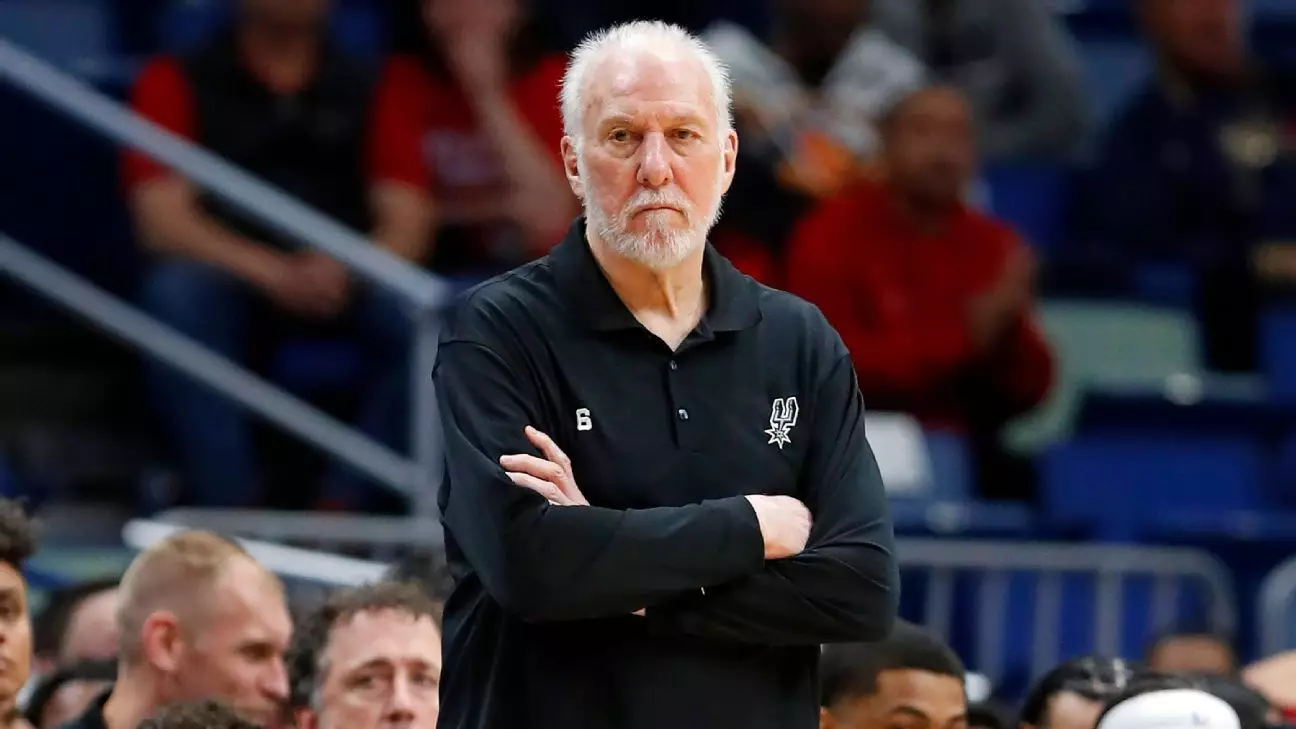The recent decision by the NBA to adjust Gregg Popovich’s career coaching record signifies more than a mere numerical tweak; it challenges our perception of greatness in basketball. While the adjustment might seem minor—removing 77 games and crediting them to his interim acting coach—it raises profound questions about how we honor achievement and legacy. In an era obsessed with statistics and records, even a slight recalibration demands scrutiny. Popovich’s figure of 1,390 wins, once seen as a testament to decades of unparalleled excellence, now seems less definitive in the context of this correction. Yet, this act underscores a broader truth: achievements in sports are dynamic, subject to nuances often overlooked in the pursuit of legend-building.
The Complexity of Historical Record-Keeping in the NBA
The NBA’s history of adjusting historical records is not without precedent, and this recent move continues a tradition of adapting the past to better reflect circumstances on the ground. Back in 1979-80, Jack McKinney’s injury and Paul Westhead’s interim role led the league to reassign win-loss records, acknowledging the unique situation. These shifts reflect an understanding that coaching continuity and unforeseen events complicate the simplistic metrics of wins and losses. However, they also highlight the subjective nature of “authentic” achievement. Is Popovich’s record less credible because it now excludes games he did not coach? Or is it more honest, giving credit to the player who genuinely led during those final games? The revised measurement offers a more accurate perspective but also complicates the narrative of dominant coaching careers.
The Implication for Popovich’s Legendary Status
While the adjustment slightly raises Popovich’s winning percentage—an incremental improvement from .621 to .628—the significance lies more in the symbolic than numerical realm. Popovich remains the winningest coach in NBA history, adored not solely for numbers but for his influence on the game and his leadership style. Removing the final 77 games doesn’t diminish his impact but does serve as a reminder that titles of greatness are fragile, often fragile under the weight of historical scrutiny. Critics might argue that such revisions undermine the integrity of records, but supporters see it as a commitment to fairness and accuracy. Ultimately, Popovich’s influence extends beyond wins; it includes mentorship, innovation, and cultural leadership, qualities that can’t be measured simply in victories.
The Broader Lesson: Reassessment as a Path to Truth
This recalibration prompts us all to reconsider how history is recorded and celebrated. It reveals that even the most revered figures are subject to reassessment when new information or perspectives emerge. Popovich’s case emphasizes humility in interpreting achievements and reminds us that greatness isn’t solely defined by totals—it’s also about context, resilience, and integrity. In an age of relentless scoreboard watching, embracing such nuance enriches our understanding, ensuring we appreciate legacies for their full complexity rather than just their numbers.

